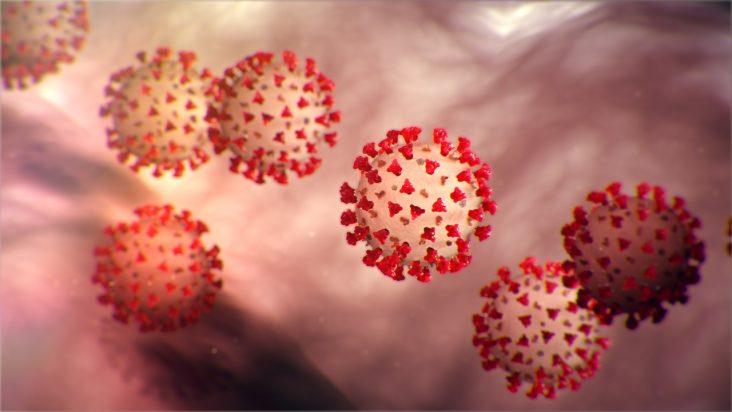COVID-19 cases rise more than 12% in Crawford, Sebastian counties
by July 2, 2020 5:01 pm 1,560 views

The number of new cases of COVID-19 in the Fort Smith area jumped 12.1% Thursday, showing that the virus has clearly made its way to the area, noted an emergency room physician.
The Arkansas Department of Health reported that the number of positive cases in Crawford County rose 14% Thursday with 23 new cases being reported. That brings Crawford County’s number up to 190 positive cases, with 88 of those active. There has been one death reported in Crawford County. Sebastian County cases jumped 11.5% overnight with 55 new cases, bringing the county’s total 533, with 257 active positive and five deaths.
There are 22 COVID-19 patients in the Fort Smith hospitals – Mercy-Fort Smith and Baptist Health-Fort Smith – with eight on ventilators. The number of hospitalizations of virus patients is steady and neither hospital is experiencing problems with capacity issues, said Rep. Dr. Lee Johnson, R-Greenwood. Johnson is also the medical director for Fort Smith EMS and Southwest EMS and a practicing emergency room physician.
“We are about where we were last week. Every day, we admit some with COVID; every day we discharge with patients with COVID. We have been steady at 15-25 in the hospitals with a third of those on a vent,” Johnson said. “Steady numbers are better than exponential growth.”
Early in the pandemic, hospitals, EMS and emergency management teams in the Fort Smith metro held weekly phone meetings to discuss concerns about capacity and needed equipment. As things progressed and the area did not see a high number of cases, those calls became less frequent, Johnson said. They have started again in order to allow all the area hospitals to communicate needs and concerns.
“We will keep them up as long as needed to keep in touch. It’s a way to communicate capacity issues and to implement a search plan if needed. All the hospitals have a plan, but no one has needed to implement one yet,” Johnson said, noting there is also a state-wide plan for the region any hospital in the area can use if needed.
Though a continuing rise in numbers of new cases can seem alarming to some, the story the numbers tell, Johnson said, is that COVID has made its way to the community.
“What we have seen over the past few weeks is that it has arrived in our community and it is beginning to spread in our community,” Johnson said.
The relatively low number of cases in the Fort Smith area in March, April and even May could be attributed to people traveling outside of the area and coming back with COVID. Now the virus is here and spreading.
The number of new cases will continue to show and ebb and flow during the course of a week because of testing. Most test sites are closed on Sundays and few tests are done on Saturdays. Because the majority of tests conducted in the Fort Smith area are done with kits and sent to a commercial lab for processing, return time for results is two to three days. Fort Smith hospitals do have limited resources to run tests locally, but those tests are being reserved for more serious cases in the hospitals, Johnson said. The number of new cases will therefore be fewer at the first of the week than at the later part of the week, he said.
Though Northwest Arkansas has announced it will slow the number of tests being conducted because of limited testing material, testing in the Fort Smith area will continue as it has.
“Right now, we are testing pretty much anyone who wants a test. No one is turned away,” Johnson said. “If we see a surge in numbers, we might have to take a look at what we are doing, but for now testing will continue.”
He said he does not expect the number of new cases reported each week to decline for up to the next six months.
“It is important to be diligent. I know we say that a lot, but it is so important. Social distancing is the best chance to mitigate the spread once it is in the community, and it is in our community now,” Johnson said.
Along with social distancing, area residents should limit social gatherings and wear masks.
“Masks — keep them in your car or pocket and use them anytime you can’t be six feet away or will be in close contact with others. It will help to slow the spread. Think back to March and April. If we had seen these numbers in April, would you have continued to stay diligent? How should you be now that it is in our community?” Johnson said.
